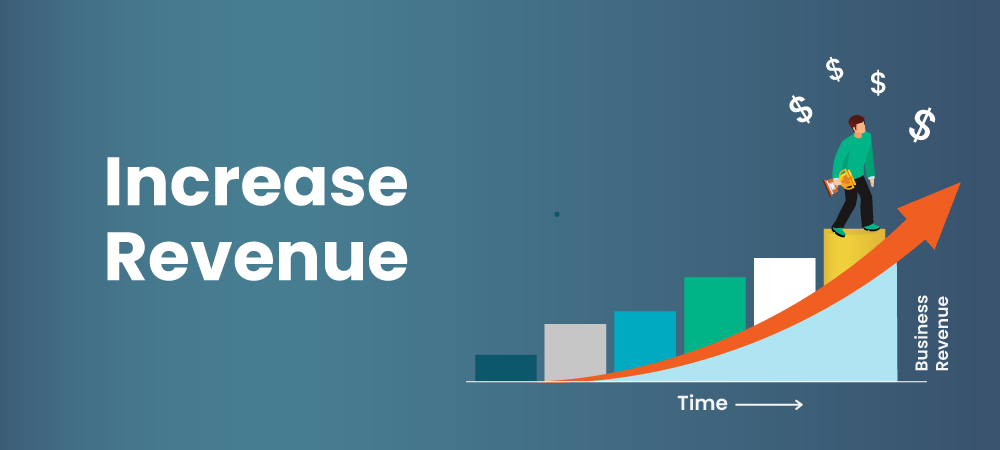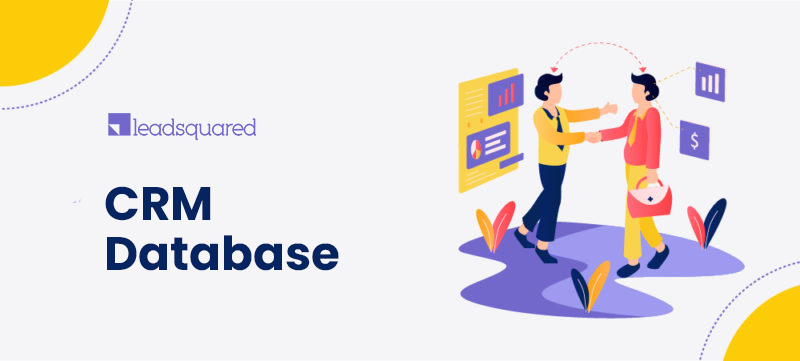
In this competitive world, it is essential to communicate with the right information at the right time. To that effect, the CRM database helps you organize customer’s data in one place, which was earlier clustered around different silos. With complete access to customer’s information, it is easier for your team to pitch your product effectively. CRM customer relationship management systems are essential for this process.
Not only that, when all your customer insights are available at your fingertips, you can nurture them with engaging and more relevant inputs.
First, let us understand what CRM is.
What is Customer Relationship Management (CRM)?
Customer Relationship Management (CRM) is a system that helps you to store all data related to your customers, in one place. The software prevents lead leakages and tracks customers’ journeys, interactions, and more to help you maintain long-term customer relationships.
CRM doesn’t stop with that. It provides various other usages, such as grouping contacts, generating reports, sending sequenced emails, sales process automation, and so on. You can improve and prioritize your daily work based on the analytics provided by CRM. A CRM system can do drip marketing for you making your life a lot easier.
Operational CRM is crucial for enhancing team efficiency in key functions such as sales, marketing, and customer service.
It is a strategic approach designed to manage a company’s interactions with current and potential customers. By leveraging technology, processes, and people, CRM systems help businesses understand customer needs, preferences, and behaviors. This understanding allows companies to deliver personalized experiences that foster loyalty and drive business growth.
In essence, CRM is a cornerstone of modern business operations, enabling organizations to streamline their sales, marketing, and customer service processes. By doing so, businesses can make data-driven decisions that enhance revenue and profitability.
Role in managing customer interactions
Customer Relationship Management (CRM) is a technology designed to manage all your company’s relationships and interactions with current and potential customers. At its core, CRM helps you stay connected to customers, streamline processes, and ultimately improve profitability.
A CRM system provides a clear overview of your customers, including their contact information, purchase history, and any interactions they’ve had with your company. By centralizing this information, CRM systems enable businesses to deliver personalized experiences, anticipate customer needs, and build stronger relationships.
Whether it’s tracking a sales lead, managing a marketing campaign, or providing customer support, a CRM system ensures that all customer interactions are recorded and accessible, making it easier to serve customers effectively.
Advantages of CRM Database in Your Business
Are you wondering if a customer relationship management database CRM is worth the splurge?
Implementing a CRM system offers a multitude of benefits that can significantly impact your business. Analytical CRM helps business leaders make informed strategic decisions by understanding relationships between specific data points. Look out for some of the benefits and advantages that might change your perception:
Increases Revenue
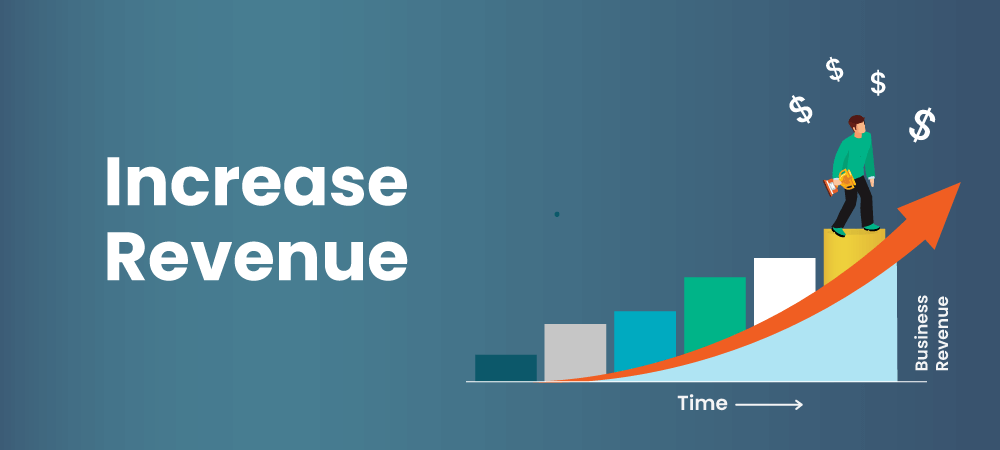
More successful marketing campaigns and sales mean increased revenue for your company. A CRM database helps you achieve that by providing greater accessibility to your customers’ information and CRM data.
It enables you to publicize the relevant content, based on potential customer’s interests. When you nurture your customers according to their preferences, it results in inclining their interest towards your company and hence increases revenue upon successful sale.
Businesses can develop targeted strategies to retain existing customers. This can be achieved through personalized marketing campaigns , proactive customer service, and loyalty programs. CRM systems differ in their abilities to pipe data from other applications and functionalities.
Improve customer relationships with customer data
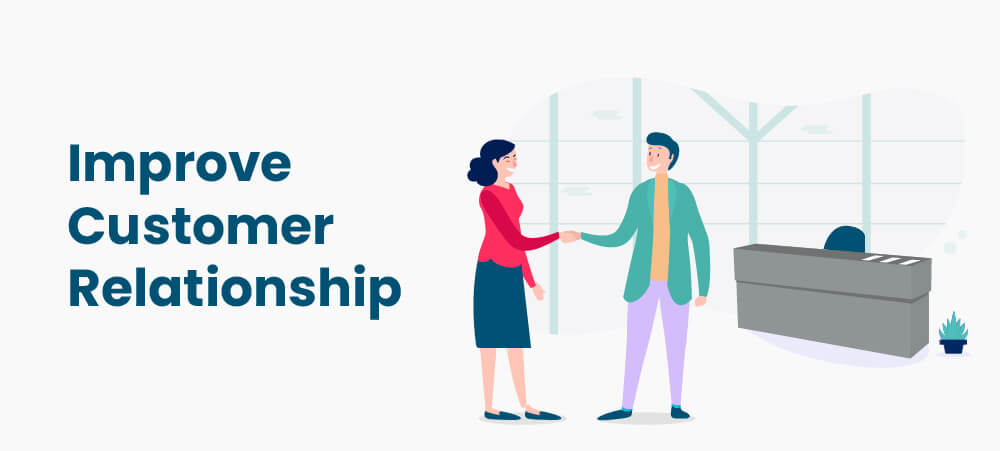
Every customer wishes to be treated like an individual rather than one among many. The CRM database tracks the customer information (their shopping behavior, interests, and purchase history), showing that you have an interest in each of your customers. This boosts customer satisfaction and loyalty and improves your relationship with your customers. Identify a quick win with CRM data.
Improve efficiency and productivity

The CRM database helps you to bridge the gap between your sales and marketing teams. Collaborative CRM systems enable seamless sharing of customer data among team members, enhancing overall efficiency and productivity. For example, through CRM, your marketing team can identify the lead source. Following that, when the sales team calls your prospect, based on the conversation they add their notes in CRM.
These notes furnish details about the actual requirements of your clients. Your marketing team can access these notes to optimize the content on different marketing channels.
It ensures that both your sales and marketing teams work together in complete harmony, benefiting your business.
Close more deals

The CRM database contains all the conversations of the sales team with the customers. Effective CRM database management ensures that all customer interactions are recorded accurately, enabling better training and strategy adjustments. During the reviews, the team members can go through each conversation and change any certain approaches or tactics used so that the salesperson can be trained well to make a better deal and more sales.
Types of CRM Systems
CRM systems can be categorized into three main types: cloud-based, on-premise, and hybrid. Each type offers unique features and benefits, catering to different business needs and preferences.
Cloud-based CRM systems
Cloud-based CRM systems are hosted online and can be accessed through a web browser or mobile app. These systems offer scalability, flexibility, and cost-effectiveness, making them an ideal choice for businesses of all sizes. One of the key advantages of cloud-based CRM systems is their ability to provide automatic software updates, reducing the need for extensive IT maintenance. Additionally, they enhance collaboration by allowing team members to access customer data from anywhere, at any time. This increased accessibility ensures that your team can stay connected and work efficiently, regardless of their location.
On-premise CRM systems
On-premise CRM systems are installed and hosted on a company’s own servers. These systems offer more control over data security and customization, making them suitable for businesses with complex IT infrastructure or strict data security requirements. However, on-premise CRM systems require significant upfront investment, ongoing maintenance, and IT support. Despite these challenges, they provide a high level of data protection and can be tailored to meet specific business needs, offering a customized solution that aligns with your company’s unique requirements.
Hybrid CRM systems
Hybrid CRM systems combine the benefits of cloud-based and on-premise CRM systems. They allow businesses to store sensitive data on-premise while leveraging cloud-based features for scalability and flexibility. This approach offers a balance between data security and flexibility, making hybrid CRM systems an attractive option for businesses with specific IT requirements. By integrating the best of both worlds, hybrid CRM systems provide a versatile solution that can adapt to the evolving needs of your business, ensuring that you can manage customer relationships effectively while maintaining control over critical data.
By understanding the different types of CRM systems and their benefits, you can make an informed decision that aligns with your business needs and goals.
Advantages of a Cloud-based CRM Systems
Cloud-based CRM systems are hosted on the cloud, offering a range of advantages over traditional on-premise solutions. Here are some key benefits of cloud-based CRM systems:
- Scalability and flexibility: Cloud-based CRM systems can easily scale to accommodate the growing needs of your business, providing flexibility to add or remove features as required.
- Cost Savings: By reducing the need for extensive infrastructure and maintenance, cloud-based CRM systems can lead to significant cost savings.
- Increased accessibility and mobility: With cloud-based CRM systems, your team can access customer data from anywhere, at any time, using any device with an internet connection.
- Enhanced collaboration and communication: These systems facilitate seamless collaboration and communication across teams and departments, ensuring everyone is on the same page.
- Automatic software updates and maintenance: Cloud-based CRM providers handle software updates and maintenance, ensuring your system is always up-to-date with the latest features and security patches.
- Improved data security and backup: Cloud-based CRM systems offer robust data security measures and automatic backups, protecting your valuable customer data.
Cloud-based CRM systems like LeadSquared are suitable for businesses of all sizes, from small startups to large enterprises. They offer a comprehensive range of features, including contact management, lead management, sales pipeline management, marketing automation, and customer service and support. Some popular cloud-based CRM systems include Salesforce, HubSpot, and Zoho.
By understanding the different types of CRM systems and their benefits, you can make an informed decision that aligns with your business needs and goals.
Many modern CRM platforms are providing the kinds of solutions that businesses need, but these platforms are only as good as their data.
How to Choose a CRM System: Factors to Consider
You must choose the best database for your company. There are several options in the market. But which one is the best?
For instance, a CRM database example like Salesforce can provide a comprehensive solution tailored to your business needs.
There are a few factors that you need to consider before purchasing an apt CRM database.
Pricing
CRM systems may charge annually or monthly, depending upon the services they offer. Conclusively, it entirely depends on the requirements of your company. For example, If you are a small or mid-size enterprise your requirements will vary from the corporates, and similarly, pricing will be different.
Features
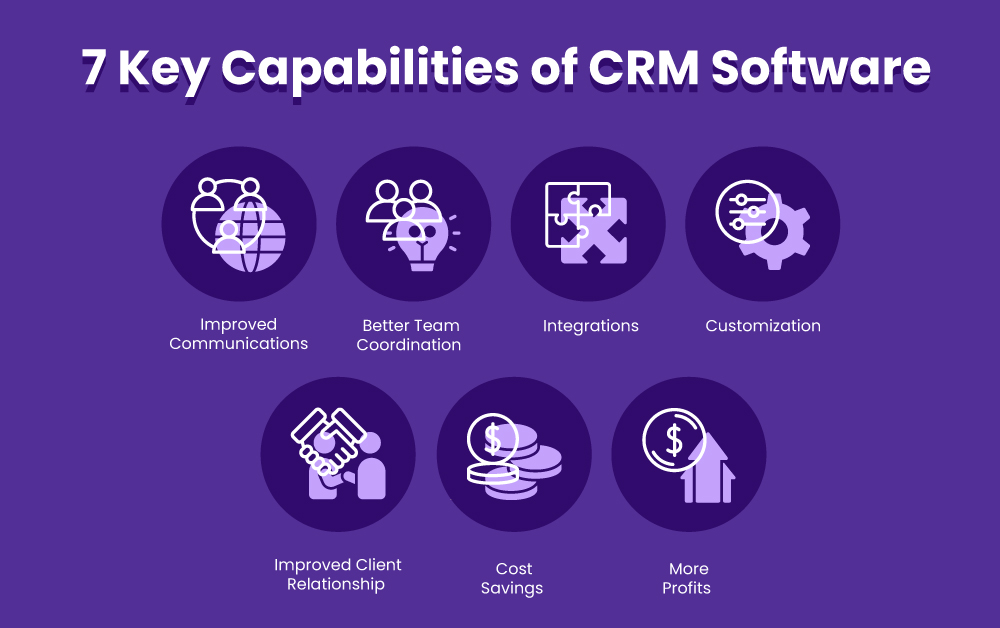
You must prioritize features. Consider what suits your company the most. Consider whether the CRM database offers analytical CRM features to help you understand relationships between various data points and make informed strategic decisions. Do not go for a database that doesn’t offer analytics and an advanced management list if that is what your company requires the most. Make sure to list features your company needs for its betterment before you decide on a CRM database program.
Learning curve
It might take a while before you completely understand the working of the CRM database. The smaller the learning curve, the better it would be for you, especially if you are beginning.
Integrations
You should be careful to choose a CRM database that integrates well with other products and tools that you currently rely on for better user experience. Before starting a data migration project, it is crucial to clearly define the scope and objectives, identify the data to be migrated, the source systems involved, and the target database. Ensure that the CRM database supports data migration to integrate seamlessly with your existing systems.
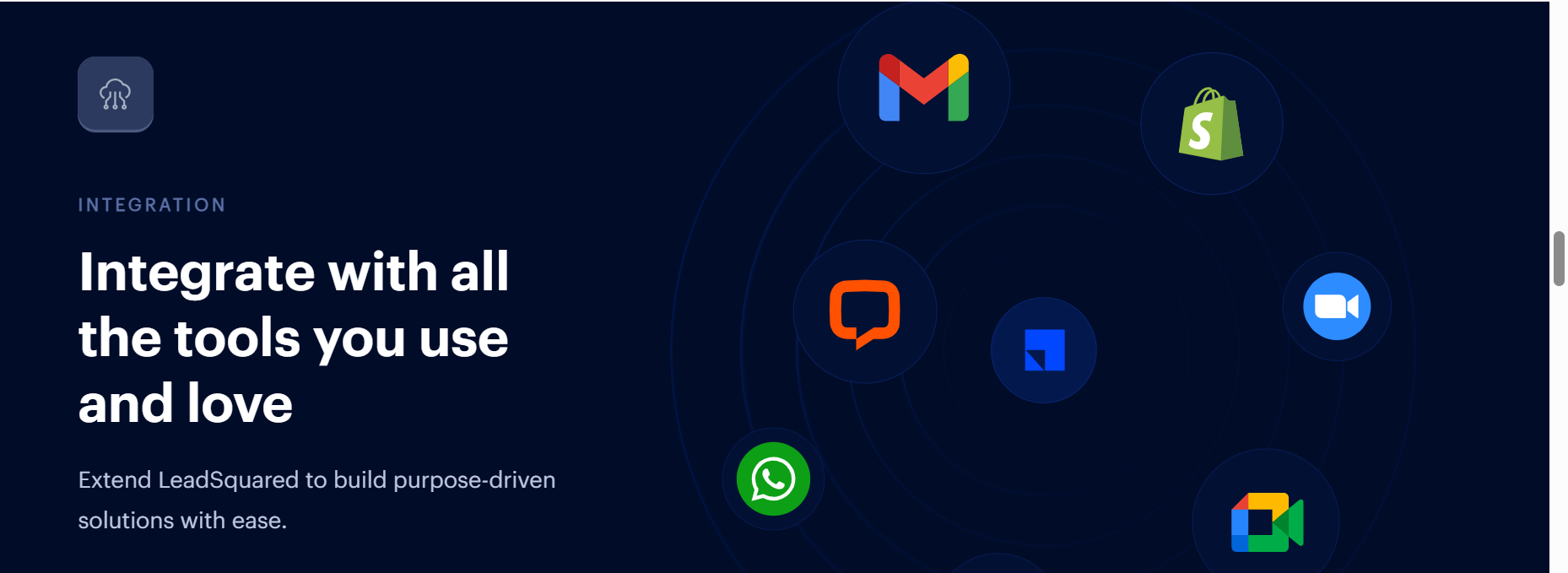
Scalability
In a growing market, your company might have more contacts and team members in the coming future. Scalability is crucial for business leaders who need to make informed decisions as their company grows. This means that your CRM database should be flexible enough to accommodate the changes in the company. If your CRM database cannot grow and provide changes according to your company growth, you might have to buy a new program every time your company expands.
But, if we look at CRM, it is all about business. A CRM system processes the data for you to identify what will work out and what might happen in the future if you follow certain tactics. This system does all the analytical and predictive work; you don’t have to rack your brains with it.
Identify More Selling Opportunities with CRM Database for Sales and Marketing Operations
Consider the e-commerce websites, for example. You might have noticed that you received an email from the e-commerce company suggesting you buy a particular product based on your previous purchases and search history. Who do you think that mail was from?
Their CRM system helps them get more customers and reach a vast audience. The CRM system interprets what you have purchased and predicts what your customers might want to buy next from their search and purchase history.
CRM databases also streamline marketing operations by providing insights into customer behavior and preferences.
If you have a qualified customer whom you wish to add to the newsletter list or to whom you want to send emails encouraging or appreciating them, it will be difficult to do it manually.
A normal database will have the details of the customers. But it will be challenging to drill down and search for a particular contact who has done the most shopping throughout the year. It is crucial to optimize your CRM data Optimizing your CRM data is crucial to guarantee its accuracy, consistency, and usability.
With a CRM database, it is effortless, as details of every customer are added automatically, making it easier for you to contact them.
The best CRM systems also provide different ways of reaching your qualified customers through email marketing, etc. Also, it enables your sales and marketing team to work together and construct long-term customer relations.
Make the ideal decision now and scale your business to newer heights with LeadSquared CRM Software.
Book a demo today!





